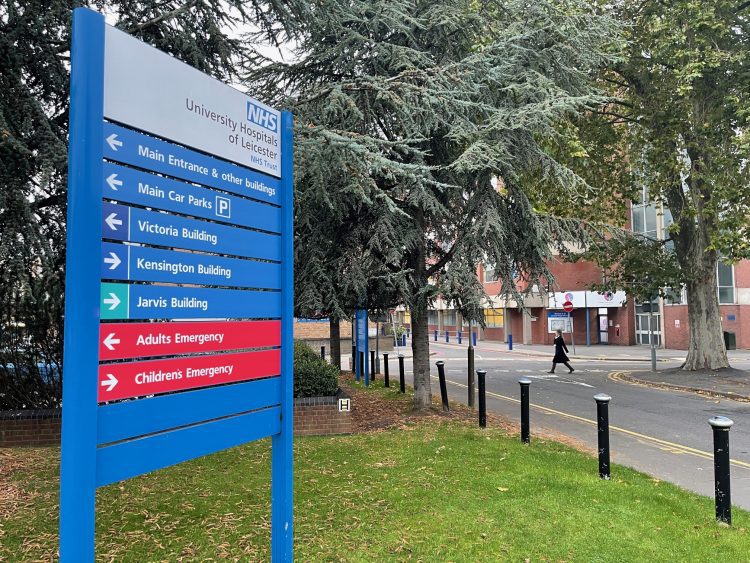Cancer patients have been awarded £6.8m in damages, after Leicester hospitals were found to have harmed them during reconstructive surgery.
The oral and maxillofacial surgery service at the Leicester Royal Infirmary was suspended in 2016 after the Royal College of Surgeons investigated safety concerns raised by a dental trainee.

Since then, new figures revealed by Lime Solicitors, show that the University Hospitals of Leicester NHS Trust has paid out almost £6.8 million in damages to 41 cancer patients who were harmed during reconstructive maxillofacial surgery – an average of £166,497 per case.
One of those affected was a dad named as ‘Mr DG.’ In 2015, the 59-year-old had his tonsils removed after being diagnosed with tonsil cancer, which was treated with a course of chemo-radiotherapy.
After the disease returned a year later, he had a 10-hour operation to remove the cancer, have tracheostomy and feeding tubes inserted, and reconstructive maxillofacial surgery.
As a result of the ‘negligent procedure,’ Mr DG required additional surgeries and was left with shoulder weakness and reduced mobility of the upper limb, chest scarring, shoulder disfigurement and psychological harm.
He also accepted early retirement as he could not manage a full-time role due to fatigue and his employer was unable to offer him a part-time position.
The negligence has had a huge impact on his day-to-day life, he claims.
Mr DG, who has settled his medical negligence claim against the trust, said: “I was told the surgery would be curative. No risks were explained to me, no discussion took place – it was almost as if the maxillofacial consultant had made up his mind for me and I put my trust in his clinical opinion.
“When my wife visited me following the surgery, she fainted from the shock of seeing the state I was in. I had major swelling down the left side of my face, a tracheotomy and multiple metal staples. I remember feeling completely disorientated and had no voice for a couple of weeks.
“What has happened to me is an absolute disgrace. There are times I feel so low and I can’t be bothered talking to anyone – not because I don’t want to but because it requires too much energy, which I just don’t have anymore.
“I know people struggle to understand me when I talk and this massively affects my confidence. I’m also extremely critical and self-conscious about the scarring on my face and torso, and when I leave the house, I can’t help but feel people are looking at me.”
Lime Solicitors has represented seven people who received negligent reconstructive maxillofacial surgery at the hospital.
“Some patients who used the service between 2009 and 2016 were provided unnecessary surgery (the pectoralis major flap reconstruction), using their chest to reconstruct damaged tissue in their neck and face. There were better surgical techniques available, causing less damage and deformity. However, these were not being utilised as the consultant surgeons had a high failure rate for these procedures,” said Viral Daily, Clinical Negligence Associate.
“As a result of having the – often unnecessary – pectoralis major flap reconstruction, patients suffered with significant cosmetic defects together with difficulties in eating, swallowing and talking. As a result of the wrong operation being carried out, some patients were also left with a lifelong feeding tube through their stomachs, which they otherwise could have avoided.
“It was these sorts of injuries that caused the Royal College of Surgeons to suspend the treatment pending investigation due to safety concerns.”
Responding to the claims, Andrew Furlong, Medical Director at University Hospitals of Leicester apologised ‘deeply’, and said that a “comprehensive review” had been undertaken in order to prevent it happening again.
“Significant changes have been made as a result, including the appointment of extra consultants, improved patient information and an overhaul of standard operating procedures,” he added.
“We are extremely grateful to everyone who contributed to the review process, which has led to major improvements in the quality of care provided by the service and to better outcomes for our patients.”






